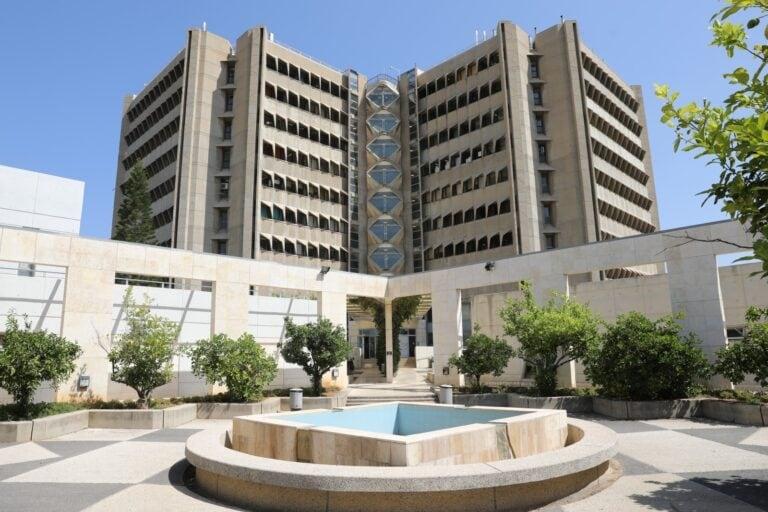Tel Aviv University’s Faculty of Medical and Health Sciences. Photo via Tel Aviv University.
Research uncovers hidden link between heart attacks and cancer. The discovery could lead to more advanced care in the field of post-cardiac arrest treatment.
Researchers in Israel say they now understand why patients who have suffered a heart attack are more likely to develop cancer; their findings could result in improved treatments for cardiac patients, to minimize their risks.
The researchers from Tel Aviv University (TAU) and the Sheba Medical Center believe tiny bubbles released by the recovering heart actually promote the growth of cancer cells throughout the body.
After testing their theory on animals, they found that using drugs to inhibit the release of these bubbles – which they call “small extracellular vesicles” or sEVs – slowed the growth of cancerous tumors.
According to Tal Caller, a medical and research student working on the project at TAU, the heart releases more sEVs than usual into the bloodstream after an attack. They move through the circulatory system and eventually reach the tumor or pre-cancerous tissue, where they directly promote the growth of certain tumors.
They also modulate the immune system, making the body more vulnerable to tumor growth.
“Following an injury in the heart muscle and deterioration to heart failure, sEVs containing growth factors and small nucleic acid molecules that promote cell division are released,” said Caller.
“These sEVs contribute to the healing of the injured cardiac tissue. However, released from the injured heart, those vesicles move within the body’s circulatory system, eventually targeting cancerous growths.”
The link between heart failure and cancer was first made by Israeli cardiologist Tal Hasin, director of the Heart Failure Unit at Shaare Zedek Medical Center in 2013.
The new research, carried out at TAU’s Neufeld Cardiac Research Institute and its School of Medicine, builds on his findings and explains the actual mechanism – why that’s the case, and what can be done about it.
Many experts have suggested that the link between heart failure and cancer was because of shared risk factors, such as smoking, diabetes, and obesity.
Prof. Jonathan Leor, who headed the recent research, says that’s not the case.
“We showed for the first time that the diseased heart secretes sEVs that contain thousands of different growth factors,” he said.
“These bubbles directly promote the growth of certain tumors and also modulate the immune system, making the body more vulnerable to tumor growth.”
Using drugs to reduce the number of sEVs is effective in terms of inhibiting cancer, but increases damage to the heart.
“That is why we tried a different strategy: treat the patient’s heart to reduce the damage to the cardiac tissue so that it secretes fewer sEVs,” said Prof Leor.
By treating animals with a heart failure drug (spironolactone) at a very early stage, the researchers found the heart secreted 30% fewer sEVs, and the cancerous tumors grew more slowly.
“It may be necessary to adjust the existing treatments for the heart so that they also consider the risk of cancer,” said Caller.
“In addition, it is possible to find biomarkers among heart patients that will indicate an increased risk of cancer since not all patients are at an increased risk. This is basic research, and much work is still required to unravel the connection between the two.”
